The Meetings in Beijing
…by Konstantin Penzev, …with New Eastern Outlook, Moscow
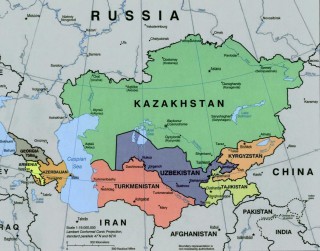
[ Editors Note: America’s foreign policy of self defeat continues on in Asia. The Bush (43) NeoCon grand strategy of capturing the Caspian Basin petro chemical prize while ringing Russia and China with a huge forward military deployment was nothing more than a Neo-Cold War replacement for the last one, and a gift to our military industrial complex.
The stupid strategy played a key role in our bankruptcy and new permanent lower standard of living, although not for ‘all’ Americans. It also gave a big push for these Asian countries to band together for mutual defense against US trade war intimidation.
Sadly our Navy is being converted into off shore muscle for multinational corporations that have no loyalty to any country. It has been deployed to protect us from non-existent naval threats, or I guess you would call them ‘stealth navies’ today…the kind you can’t see.
Our threatening policy also focused them on working together to create energy supply land bridges to blunt our Navy threat against their supply lines. The pipelines being built and those planned will lock out current and all future Western oil discoveries from these markets.
The US over use of its brain dead sanction policy has now made communal defense against that a top priority. You can take that a step further with their wanting an alternate reserve currency to trade in, also. They want to be sanction proof. Who made them want to do that?
This is being spun back here at home as an ‘attack on the dollar’, but it is our greedy elites and their political honchos who have attacked the dollar, along with the rest of the our economy and devastated it more than any ‘enemy’ could have done. Bush (43), his daddy’s gang of thieves and the NeoCons destroyed our country, and not a one of them has paid an appropriate price.
When a US administration use the term ‘our interests’ when discussing foreign policy, you all have to understand that they are no including you and I in that term. The ‘our’ … is ‘them’. But few have suffered national public disgrace.
Quite the contrary, Paul Wolfowitz, got moved up toe the World Bank… a continuation of the new American way, where failure at a high enough level qualifies you for a higher job. I call this appointment terrorism and we are long past time leaving such decision in the hands of corrupt politicians. If we do, we deserve what we get.
That said, it is way past time we started taking a good look at curtailing executive power in the White House, and Congress. They have established a good enough record by now that they are just to dangerous to be given such authority… Jim W. Dean ]
__________________________________
…by Konstantin Penzev
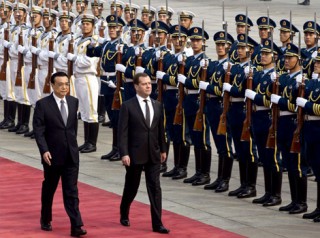
Russian Prime Minister Dmitry Medvedev visited China from Oct. 22 to Oct. 24. Visits by the Russian leadership to the Middle Kingdom are not extraordinary events in and of themselves.
Paying increased attention to this power is completely understandable. Yet there are several features of Medvedev’s latest visit that compel us to pay close attention to it.
On Oct. 22, at the same time Medvedev was in Beijing, Indian Prime Minister Manmohan Singh came for a three-day visit, and in another curious coincidence, so did the head of Mongolia’s government, Norovyn Altankhuyag. Was this happenstance? As Hua Yiwen of People’s Daily supposes, necessity is concealed behind the randomness.
About the overall background of the latest meetings in Beijing the following can be stated very briefly: In the not too distant future, India and China will become (and China has already become) the major producing regions in Eurasia, and probably the world as well. Their demand for energy and cheap electricity is growing very rapidly.
What significance does Russia have in this emerging geopolitical triangle? To a great extent, that significance is linked to energy. But that is not all. Russia is perhaps the only country that has repeatedly engaged in armed confrontation with the West and never been vanquished.
Military might is a powerful argument for Russia in big-league politics. The country is also a world leader in the design and manufacture of new weapons systems. The Obama administration’s “pivot to Asia” imposes on Beijing the necessity of increasing its army and naval might. Cooperating with Russia would be quite useful for this relationship.
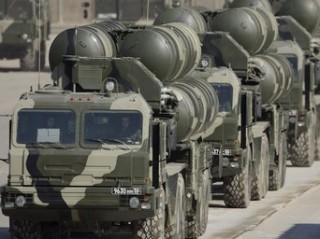
All the things mentioned above are so-called “objective preconditions” for bringing the “Eurasian Three” closer together.
The economies of these countries are capable of complementing each other, and security interests might force their governments to cooperate more closely.
What issues were on the meeting agenda for Medvedev and his Chinese colleagues? The global media gave sparse coverage to the agenda, focusing instead on the literary and sports preferences of the Russian prime minister.
As for People’s Daily, author Hua Yiwen remarked that Chinese leaders, while on a trip abroad this year, suggested that an idea to create a “Silk Road economic zone” and a “maritime Silk Road ” would bring tremendous opportunities for Russia, China and Mongolia.
Trade between Russia and China is already approaching $100 billion. As Medvedev said: “Premier Li Keqiang and I were saying at the meeting that this is not the limit. That figure could go up to $150 billion, $200 billion or more.”
In addition, passage of Chinese goods bound for Europe through Mongolia and Russia, and direct supply of Russian energy resources to China promise considerable profits for all the countries involved. This prospect is unlikely to create warm and fuzzy feelings in Washington, but it is what it is. For alas, aircraft carriers cannot control the vast expanses of Siberia.
In light of Washington’s claims of exclusivity, the sea route through the Strait of Malacca does not look as attractive to China as it did before. The bottleneck of the strait is starting to look more like the entrance to a trap. It is obvious that the Chinese want to diversify not only the sources that supply oil and gas to the country but also the trade routes connecting it with business partners.
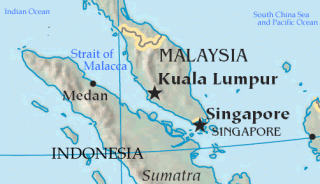
It should be noted that although the Russian government attaches special importance to relations with China, President Vladimir Putin considers Russia-India relations no less meaningful. On Oct. 21, immediately prior to his visit to Beijing, Singh visited Moscow.
At a meeting with the Indian prime minister, Putin mentioned some of the aspects of Russian-Indian cooperation, particularly the upgrades to the aircraft carrier Vikramaditya, which is almost ready to be delivered to India. Putin also noted Russia’s participation in the creation of prospective Indian weaponry.
Unfortunately, the uptick in trade between India and Russia leaves much to be desired, but some changes are outlined here. India, let us repeat, sorely needs great quantities of energy. In the state of Tamil Nadu, Russia is constructing the Kudankulam nuclear power plant.
Quoting Putin: “In July, the first energy bloc of the Kudankulam power plant went on line, connecting it to India’s electrical grid. The second energy bloc is in the works. Subsequent blocs are planned, maybe four more.”
Nevertheless, that is inadequate. Work has been going on recently to organize direct gas supplies to India, and the potential for an oil and gas pipeline network connecting India and Russia is being discussed.
Indian Foreign Minister Salman Khurshid, in a recent interview with Voice of Russia, observed that Russia could become a major partner in construction of the TAPI pipeline connecting Turkmenistan to India via Afghanistan and Pakistan. “All Russian gas now goes to Europe,” Khurshid said. “Why not send it to South Asia?”
Supplying gas through Pakistan and Afghanistan could spur industrial development in those countries, which, in the case of Afghanistan, ought to be a real breakthrough into the 21st century. A sizable portion of the Afghan population is in the business of producing opium and heroin to meet the needs of drug addicts the world over.
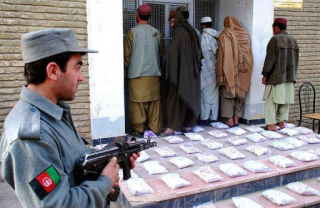
The U.S. Army Expeditionary Forces control the territory of Afghanistan. Building a gas pipeline through opium poppy fields might seem to Washington to be a vain and pointless enterprise, depriving Afghan workers of their livelihoods.
It is a pity that the White House does not adhere to the strategy of “divide and rule” as it is commonly portrayed in the media. It is more attracted by opportunities to play dirty tricks wherever possible.
As for relations between India and China, they are not simple and are weighed down by burdens of the recent past: border conflicts, support for Tibetan separatists and other unfortunate misunderstandings. These must be addressed. This requires political will, and that is something the governments of India and China have. Both sides are focused on cooperation, and that is the main thing.
According to People’s Daily, during Singh’s visit to China, the parties agreed to strengthen cooperation in establishing an economic corridor that will connect China, India, Bangladesh and Myanmar; undertaking projects in the realm of railway cooperation; and creating industrial parks. This project will also enable China to bypass the Strait of Malacca and facilitate access to the Persian Gulf.
In summary, the conclusion to be reached is this: China continues to strengthen its economic, political and, most importantly, geopolitical position thanks to its burgeoning relations with Russia, India and other countries.
In addition, the Chinese government is obviously concerned about the sharp rise in aggressiveness by Washington of late, and it is taking all precautions to bolster the country’s security. Too bad for the United States that it is experiencing major financial difficulties and can only try to resolve them on other countries’ dime.
Konstantin Penzev, writer, historian and columnist for the online magazine “New Eastern Outlook”.
Editing: Jim W. Dean
______________________________

Jim W. Dean was an active editor on VT from 2010-2022. He was involved in operations, development, and writing, plus an active schedule of TV and radio interviews.
ATTENTION READERS
We See The World From All Sides and Want YOU To Be Fully InformedIn fact, intentional disinformation is a disgraceful scourge in media today. So to assuage any possible errant incorrect information posted herein, we strongly encourage you to seek corroboration from other non-VT sources before forming an educated opinion.
About VT - Policies & Disclosures - Comment Policy





